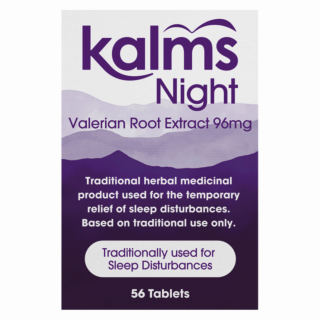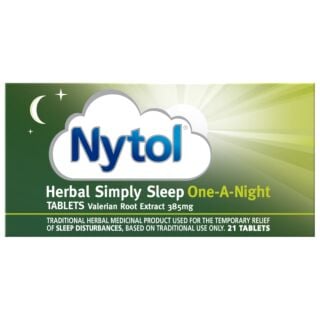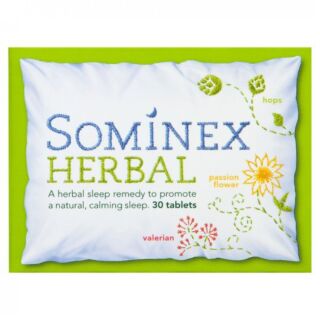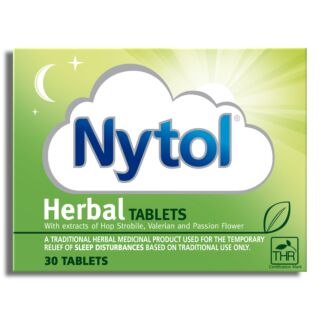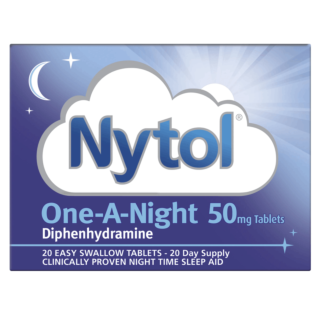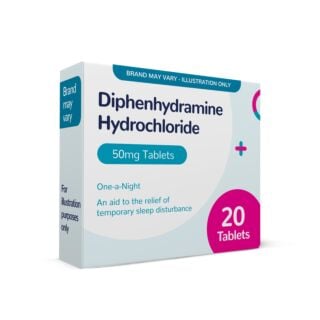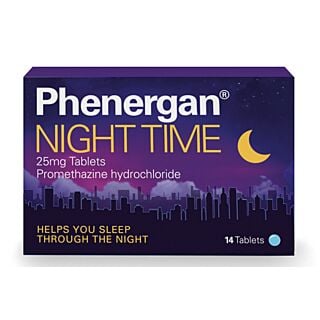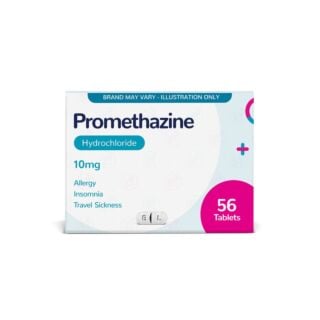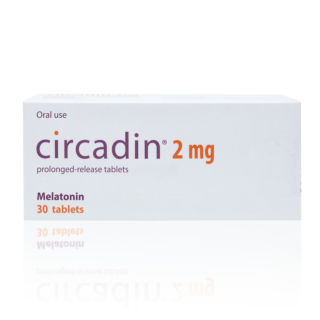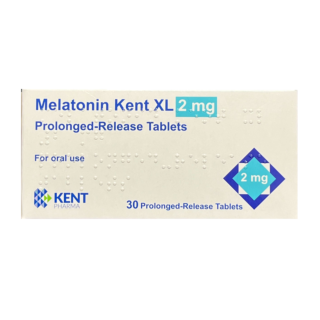What are the best tablets for short term sleep problems?

If you’ve ever laid in bed, staring at the ceiling, wondering why you can’t fall asleep, and stressing over how many hours of potential sleep you have left until your alarm clock goes off, then you're not alone.
Our sleep survey found that only 6% of people sleep for the recommended 8 hours. If you're struggling to sleep you’ve probably considered taking sleeping tablets.
When insomnia hits it can make you feel lousy, which is why many people wonder whether taking a simple pill is the best thing to do.
This is why we’re going to take a look at the different kinds of sleeping pills, which one could be the best for you, and why getting to sleep is not as simple as taking a pill before bedtime.
Should I use sleeping pills to help my insomnia?
Sleeping pills should be the absolute last resort for people who have insomnia.
If you’re struggling with sleepless nights, you can likely resolve the problem by making a couple of simple lifestyle changes.
In fact, we’ve written a whole guide about insomnia and the easy things you can try to get some shut-eye without resorting to medication!
Give it a read and try all of those lifestyle changes before you even consider taking sleeping pills, and always, always speak to your doctor before taking anything.
Sleeping pills of any kind can have unpleasant side effects and can even make matters worse, so you need to speak to your doctor before you take any of these medications.
If your doctor does give you the go-ahead (and this is very unlikely), then they’ll only recommend that you take sleeping tablets for a couple of days. They should only ever be used as a short-term solution as you work on the underlying problem keeping you awake at night.
What kinds of sleeping tablets are available?
There are three kinds of sleep aids available to those who have been recommended them by their doctor: herbal remedies, over-the-counter medications, and prescription drugs.
These each work slightly differently and contain different ingredients. So, let’s take a good look at each one and what they can do to help you get a few hours of sleep. We’ll start with our herbal remedies…
What are the best herbal sleeping tablets?
The best herbal sleep aids, such as Kalms and Nytol Herbal, all use similar ingredients to help you get a good night’s sleep.
This means that a lot of herbal remedies work in a similar way, so let’s take a look at some of their most common ingredients and how they are traditionally used to help you get some sleep.
Valerian root extract
Valerian root extract is one of the most common ingredients in herbal sleeping tablets, and it’s traditionally used to help you get to sleep.
It comes from the root of the valerian plant and is said to work as a natural sedative, which can help improve your quality of sleep.
It’s also traditionally used to help ease anxiety and stress, which are two of the most common conditions that keep people up at night counting sheep.
Hops (hop strobile)
Hops, also known as hop strobile, is another commonly used ingredient in herbal sleep aids.
You might know hops as an ingredient in beer, but it is also traditionally used to help promote a feeling of calm or to combat anxiety and nervousness.
This feeling of calm is said to be able to help you fall asleep more easily, which is why you’ll see hops on the ingredients list for lots of herbal insomnia remedies.

Passionflower
Passionflower is another traditional herbal remedy for sleepless nights. It works similarly to hops. It’s said to ease anxiety and help you drift off to a good night’s sleep.
What are the best over-the-counter (OTC) sleeping pills?
The best over-the-counter sleeping pills, like Phenergan, Nytol, and Sominex, fall into two types, and that’s because they usually use one of two active ingredients.
We’re going to examine these two ingredients and how they work to make each sleeping remedy effective, but before we do, there’s something you should remember.
Although you can buy these remedies in the pharmacy, you should only do so once your doctor or pharmacist has given you the go-ahead and should only use them as a short-term remedy for insomnia.
Remember, the risks can outweigh the rewards, so tread carefully! Now, let’s talk ingredients!
Diphenhydramine
The first of our best over-the-counter sleep remedies is diphenhydramine hydrochloride, which is found in products like Nytol Original.
It’s an antihistamine, which may leave some of you scratching your heads – aren’t antihistamines used to treat allergies?
Yes, antihistamines can help relieve symptoms of hay fever and other allergies, but some can also help you drift off to sleep, which is why some hay fever medications can make you drowsy.
Diphenhydramine is one of these antihistamines, and it can make you feel sleepy and ready to fall asleep for a good eight hours.
You shouldn’t take these kinds of medications for more than a couple of weeks, and again, you’re going to want to talk to your doctor before you take them.
Promethazine
Promethazine is the second type of our best over-the-counter sleep aids, found in brands like Phenergan and Sominex, and is part of a group of drugs called phenothiazines.
These medicines work by changing how the chemicals in your brain work. Promethazine can be used to ease allergy symptoms, treat nausea and vomiting, and, of course, help you sleep.
When it gets to work, it produces a drowsy effect that helps you to get to sleep, which is why it’s another popular way to treat short-term insomnia (when advised by your doctor, of course).
What are the best prescription sleeping tablets?
Finally, we have our picks for the best prescription sleeping tablets, divided into 3 distinct types based on how they work.
They’re all very effective when it’s time to get some sleep, although the different ways they work mean that you could be happier with one more than the others, which is one of the many reasons why you can only get them as a last resort prescription from your doctor.
Let’s look at the pros and cons of each type of prescription sleep aid.
Z-Drugs
First, we have our Z-Drugs, which all begin with a Z… Is this because the people who get these on prescription all want to catch a few more Zzz’s?
I don’t know, but I can tell you that some medicines that fall into this category are zolpidem, zopiclone, and zalepon.
Feeling the Zzz’s creep up on you already? We’ll keep how they work brief!
All of these medicines fall into a category of drugs known as hypnotics, and no, that doesn’t mean they’ll be making you cluck like a chicken whenever someone says “Friday”.
However, they do have something in common with your average hypnotist: they work on the brain to make you feel sleepy.
But before you drop off to sleep, make sure you consider the potential side effects that these medications can cause, which include nausea, vomiting, and diarrhoea. Those are just a couple of the reasons why you should only take these if they’ve been prescribed by your GP.
Melatonin (Circadin)
Our next ingredient is melatonin, which can be found in a medicine called Circadin.
If you’ve studied your sleep cycle as you’ve been trying to change your sleeping habits, you might already know that melatonin is a natural chemical in the body that helps you fall asleep.
This medicine can help you manage your sleep cycle independently, but make sure you know what you’re getting into before you pick up your prescription, as Circadin can have some pretty unpleasant side effects.
Benzodiazepines
Finally, we have benzodiazepines, which is a type of drug that includes medications such as diazepam, temazepam, and loprazolam.
Benzodiazepines work by reducing your anxiety and helping you to feel calm, which in turn helps you to fall asleep as all of the worries that keep you up at night are lessened.
These medicines will not be prescribed for long-term use, as they can become less effective over time. You may also find yourself becoming dependent on them, which is no fun.
Add in the potential side effects and you can see why these medicines should only be prescribed by a doctor.

Now we know all about the different kinds of sleeping tablets, how they work, and what ingredients they use to help you get to sleep.
Remember, these are a last resort, and you should only take them when you’ve tried to make some lifestyle changes and spoken to your doctor first.
Your doctor knows best, and if anyone can help you get to sleep, it’s them, so make yourself an appointment so you can finally get a good night’s sleep!

